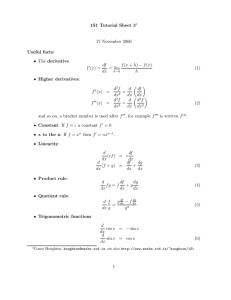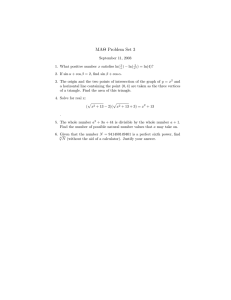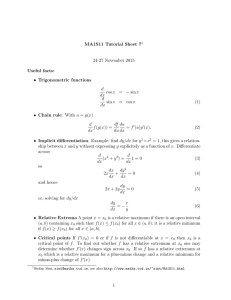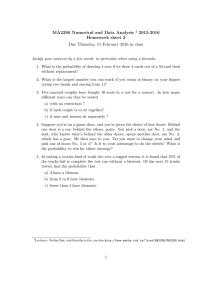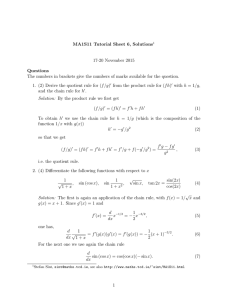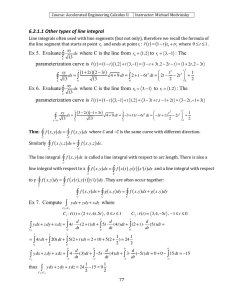MA1S11 Tutorial Sheet 6 17 November 2015 Useful facts:
advertisement
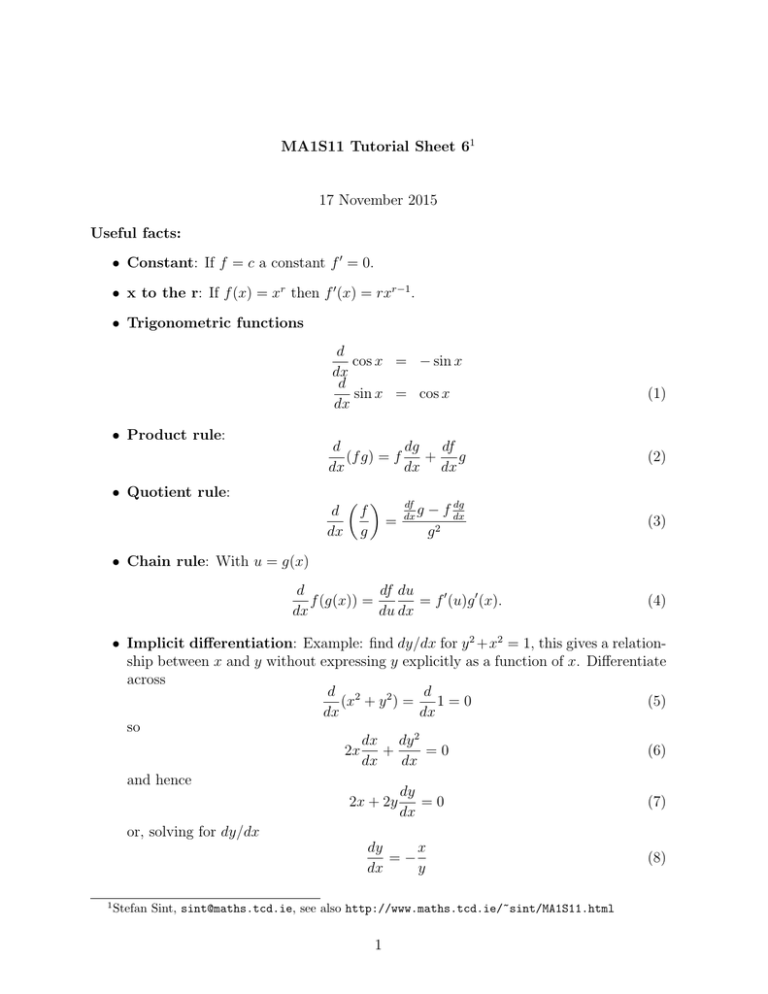
MA1S11 Tutorial Sheet 61 17 November 2015 Useful facts: • Constant: If f = c a constant f 0 = 0. • x to the r: If f (x) = xr then f 0 (x) = rxr−1 . • Trigonometric functions d cos x = − sin x dx d sin x = cos x dx • Product rule: dg df d (f g) = f + g dx dx dx (1) (2) • Quotient rule: d dx f = g df g dx dg − f dx g2 (3) • Chain rule: With u = g(x) df du d f (g(x)) = = f 0 (u)g 0 (x). dx du dx (4) • Implicit differentiation: Example: find dy/dx for y 2 +x2 = 1, this gives a relationship between x and y without expressing y explicitly as a function of x. Differentiate across d 2 d (x + y 2 ) = 1=0 (5) dx dx so dx dy 2 2x + =0 (6) dx dx and hence dy 2x + 2y =0 (7) dx or, solving for dy/dx dy x =− (8) dx y 1 Stefan Sint, sint@maths.tcd.ie, see also http://www.maths.tcd.ie/~sint/MA1S11.html 1 Questions The numbers in brackets give the numbers of marks available for the question. 1. (2) Differentiate f (x) = x−n (with n a positive integer number) in 3 different ways: • power rule for negative integer exponent • quotient rule for 1/f (x) and the power rule for postive exponent. • product rule for xn f (x) and power rule for positive exponent. 2. (4) Differentiate the following functions with respect to x x3 cos 3x, sin (cos x), sin x , cos2 x √ −x2 cos x (9) 3. (2) Find the slope, that is dy/dx, of the curve 3y 2 − 2x2 = xy (10) at the point (1, 1). Extra Questions The questions are extra; you don’t need to do them in the tutorial class. 1. Find dy/dx for 3yx6 − 4x2 + 6 sin y 4 = 0 (11) 2. Derive the quotient rule for (f /g)0 from the product rule for (f h)0 with h = 1/g, and the chain rule for h0 . 2
